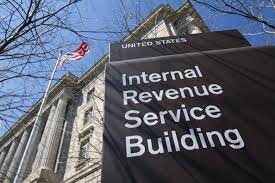The defunct crypto exchange, FTX, is locked in a legal battle with the US Internal Revenue Service (IRS) over a planned $24 billion tax bill.
FTX argues that the IRS’s claims lack merit and could potentially jeopardize any meaningful recovery intended for exchange victims.
The ongoing dispute stems from the IRS’s attempt to collect past-due taxes from FTX and its sibling company, Alameda Research, dating back to May.
Initially, on May 10, the IRS imposed a hefty $44 billion tax bill through 45 distinct claims against FTX and its affiliates.
However, the latest developments have reduced this amount to $24 billion. The IRS has been pursuing its efforts to collect taxes from the crypto exchange and its associated entities.
FTX vehemently denied the validity of the IRS’s claims in a document filed on December 10th in the United States Bankruptcy Court for the District of Delaware.
FTX’s lawyers argued that the allegations were without merit and lacked a foundation for evaluation. They expressed concern that the IRS’ pursuit of a $24 billion claim, which FTX believes is unfounded, would impede the distribution of recovered assets to FTX subscribers.
On December 12th, FTX plans to file a legal challenge with the US government to challenge the validity of the IRS’s tax claim.
It is important to note that the IRS audit is still ongoing and could last another eight months, according to the filing.
FTX is challenging the IRS’ reliance on its own processes, claiming that it only serves to delay distributions to those who are legitimately affected by the situation.
To date, the administrators of FTX have recovered approximately $3.4 billion in cryptocurrency out of approximately $7 billion in assets.
The now-defunct crypto exchange is embroiled in a complex legal battle with the IRS, which could affect the distribution of recovered assets to victims.



